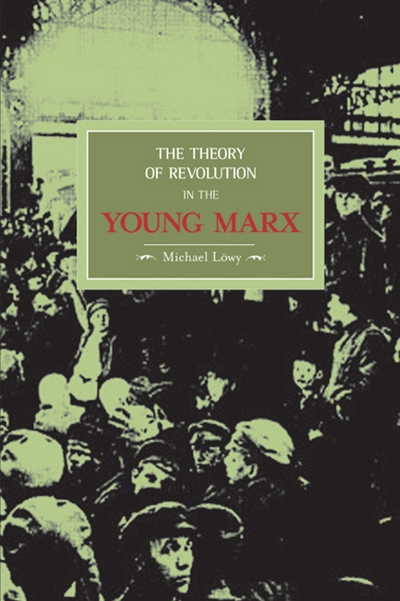Michael Löwy, Centre National de la Recherche Scientifique, Paris. Translated by Brian Pearce
This book proposes a Marxist analysis of young Marx’s intellectual evolution, from left neo-Hegelianism to his new philosophy of praxis. It distinguishes itself from most other books on the early Marx by its object – the theory of (proletarian) revolutionary self-emancipation – and its method: to understand the movement of Marx’s political and philosophical ideas in relation to the most radical currents in the labour movement of his time (beginning with Chartism and the uprising of the Silesian weavers in 1844). The central theoretical argument of the author is that Marx’s philosophy of praxis – first formulated in the Thesis on Feuerbach – is at the same time the founding stone of a new world view, and the methodological basis for the theory of revolutionary self-emancipation.
For the paperback version of this title, please go to http://www.cbsd.com/detail.aspx?Inventory=17323
Biographical note
Michael Löwy, Ph.D. (1974) in Human Sciences, Sorbonne, is Research Director in Sociology at the Centre National de la Recherche Scientifique, Paris. He has published on Marx, Lukács and Walter Benjamin, as well as (with Robert Sayre) Romanticism Against the Tide of Modernity (Duke, 2001).
Readership
Students, lecturers or any people interested in politics, the labour movement, Marx, as well as academic libraries.
Reviews
This book is brilliant, incisive, honest, and deserves to be read with attention. It is an important event in the Marxist theoretical production.
– Politique Hebdo, Paris
Michael Löwy’s book helped an entire generation to rediscover Marx’s thought beyond academic scholasticism.
– La Quinzaine Littéraire, Paris
A remarkable essay, whose merit is not only theoretical, but also historical, because it examines unknown aspects of the evolution of young Marx’s thinking.
– Politics, Paris
This work is an exemplary model of application of the historical materialist method to the study of an ideology.
– Siempre, Paris
A reading of Marx that breaks with dominant pseudo-orthodoxies. It has great qualities as the analysis of a very important moment in the history of political thought.
– Folha de S. Paulo, S. Paolo
Table of contents
Preface
Introduction
1. The Transition to Communism (1842–1844)
2. The Theory of Communist Revolution (1844–1846)
3. The Theory of the Party (1846–1848)
4. Party, Masses and Revolution, from Marx’s Time to Ours
Index


